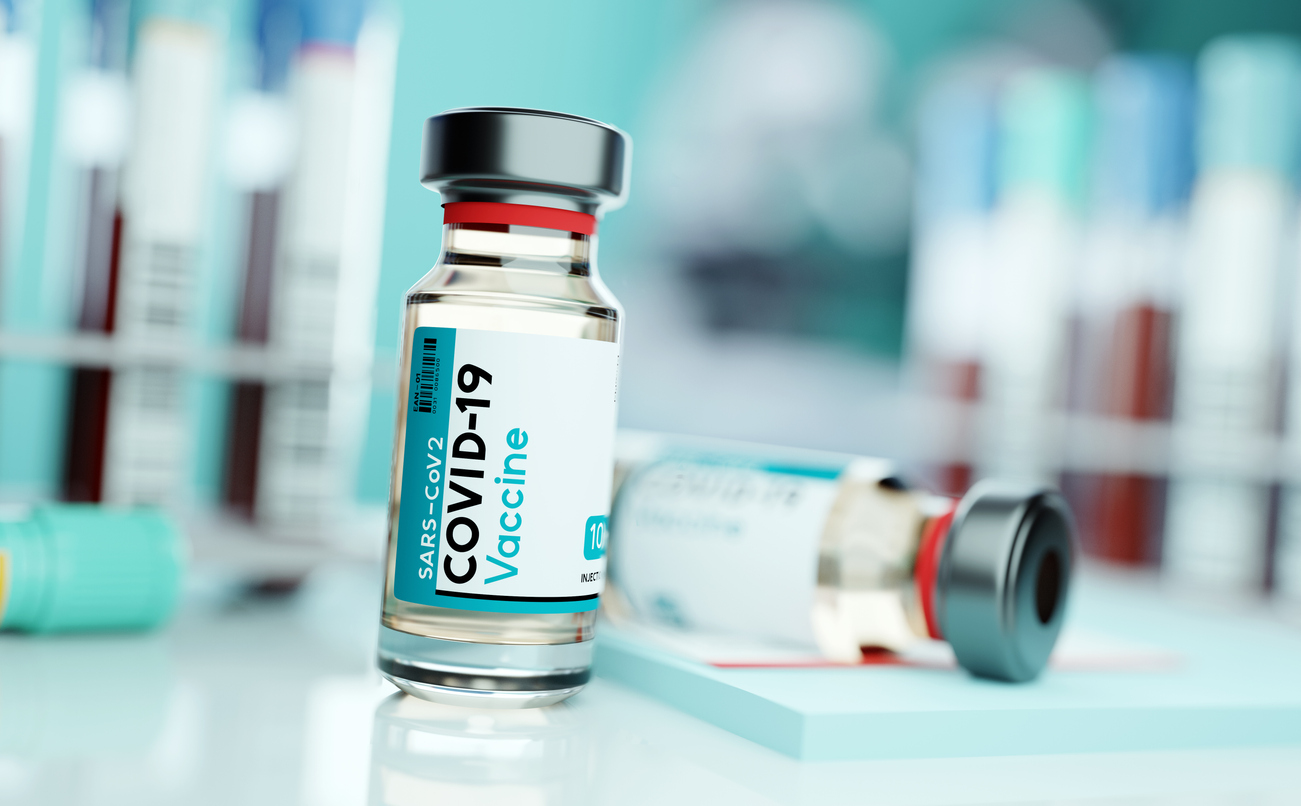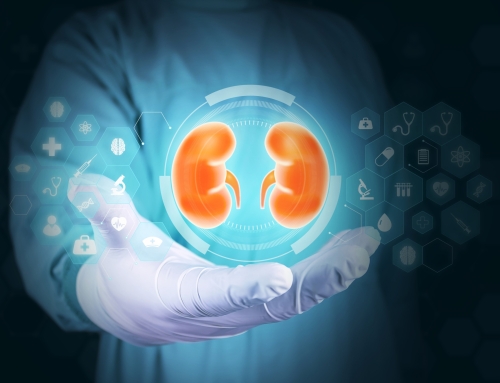By V. Scantlebury, MD, FACS, DPC Education Center Healthcare Consultant
Patients with ESRD have a reduced response to immunizations compared to the general population. This is because the response of their immune system is suppressed, leading to the inability to adequately form an antibody response or maintain antibody titers over time. The low antibody response appears to be correlated with the degree of kidney failure.
Despite the inadequate antibody response, getting vaccinated is still recommended and is most important for patients who are immunocompromised. Just as the annual influenza vaccine is updated every year to cover the most prominent strains of influenza viruses, we can expect the COVID-19 vaccines to be updated with the latest strains that result from the virus mutating from year to year.
Myth: I did not get the vaccine because I am safer without it.
Fact: Just like any vaccine, there are always side effects of most medical treatments. One must evaluate the benefits that will be gained compared to the risks of not receiving the treatment. The purpose of vaccination is to reduce your risks of dying from COVID-19 infection. With adequate vaccination, you increase your chances of being able to recover if you are infected with the virus. Without vaccination your risks of being hospitalized increases.
Myth: I received the first series of COVID-19 vaccine. I don’t need a booster.
Fact: The initial series of vaccines were directed against the one dominant strain of SARS-CoV-2 and referred to as the monovalent vaccine. These vaccines are no longer be used for vaccinations against COVID-19. It is important to receive the updated vaccines such as Pfizer and Moderna vaccines, which are targeted to the current bivalent dominant strains of SARS-CoV-2 omicron subvariants, BA.4 and BA.5 as well as the original strain. These are both mRNA vaccines. Without a current booster, you will not have the necessary antibodies to be protected against an infection with the current strains of the COVID-19 virus.
Myth: I heard that the vaccines last a year like the flu vaccine.
Fact: With the influenza vaccine, protection is recommended during the flu season in the fall. The vaccine offers protection for about 3 to 6 months. Each year if the virus changes or mutates to other strains, then the vaccines are updated to offer protection against the new strains of the virus. While there is still ongoing research about the longevity of the COVID-19 vaccine immunity, it appears that those who are vaccinated with the primary series appear be protected for at least 6 months after vaccination. This protection does not keep you from getting the virus, it protects you against severe disease, being hospitalized or possibly dying.
Myth: I don’t need to be vaccinated because I got sick from the COVID-19 virus infection.
Fact: Even if you have had a previous COVID-19 infection, the CDC recommends that you should still get the COVID-19 vaccine. In fact, the vaccine will add to your immunity against the virus without harming you. Recent data suggest that people who’ve had both vaccination and COVID infection are among the best protected because the vaccine adds to their level of immunity. Check with your health care provider as the recommendations vary regarding how long to wait after your infection before receiving the COVID-19 vaccine.
Myth: The pandemic is over. I am not worried about getting COVID-19 infection.
Patients with ESRD are particularly susceptible to severe COVID-19 infection due to older age, and multiple co-morbidities such as diabetes and hypertension. It is important to stay protected and get vaccinated. While the pandemic is over, COVID-19 virus will move towards being endemic: constant in the population and with sporadic outbreaks from time to time.
If you receive the initial primary series and first booster doses, it is still important to continue to stay protected. However, ongoing deaths from COVID-19 are particularly higher in patients over age 65.
Myth: I still do not trust how these mRNA vaccines were made so quickly. Is there another option?
There is also an additional non-mRNA vaccine, called Novavax COVID-19 vaccine, which is a protein subunit vaccine, and is formulated as a monovalent vaccine based on the original SARS-CoV-2. This is an alternative for those who cannot or will not take an mRNA vaccine.
Johnson and Johnson vaccines are no longer available in the United States.
Myth: One booster is enough. I don’t need another one.
Here are the current recommendations from the Center for Disease Control (CDC) for patients who are considered immunocompromised, which includes dialysis patients:
- If you have completed the original monovalent series and have had at least one bivalent vaccine, you should be getting a second bivalent vaccine at least 2 months after the first bivalent dose.
- For patient ages 65 years and older, an additional bivalent mRNA vaccine dose is recommended if it has been at least 4 months since your first bivalent mRNA vaccine dose.
- For patients ages 12 years and older, if you are moderately or severely compromised, an additional vaccine dose is recommended at least 2 months after the last COVID-19 vaccine dose.
Moderate to severe immunocompromising conditions include:
- Active use of chemotherapy for cancer
- Hematologic malignancies
- Hematopoietic stem cell or solid organ transplant
- Advanced or untreated HIV infection with CD4 cell count <200 cells/microL
- Moderate or severe primary immunodeficiency disorder
- Use of immunosuppressive medications (e.g., mycophenolate mofetil, rituximab, prednisone >20 mg/day for >14 days).
If you are unsure if you fall into the immunocompromised status, please check with your healthcare team for recommendations.
If you are 65 years or older without an immunocompromised condition, the decision to receive an additional dose depends on your personal risks for severe disease, and risks of ongoing exposure and personal preferences.
Part of this summary of information has been taken from UpToDate Medical Information: COVID-19: Issues related to end-stage kidney disease by Dr. Paul Palevsky and Dr. Jai Radhakrishnan




